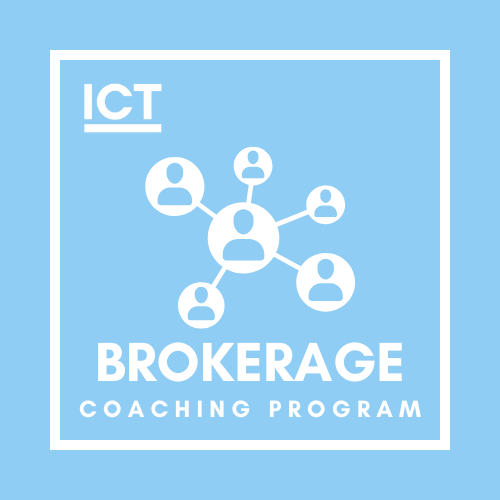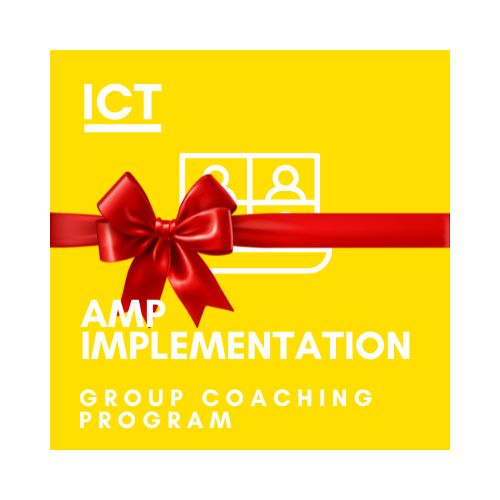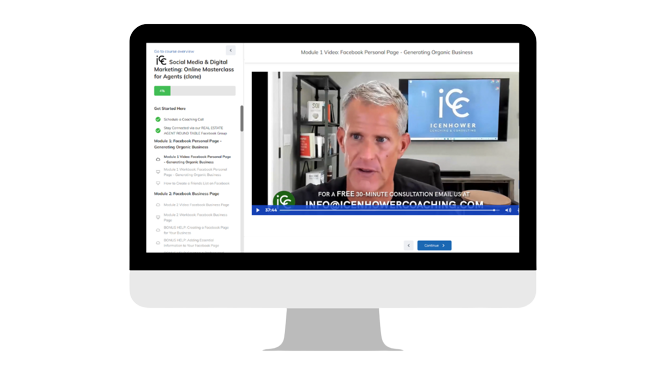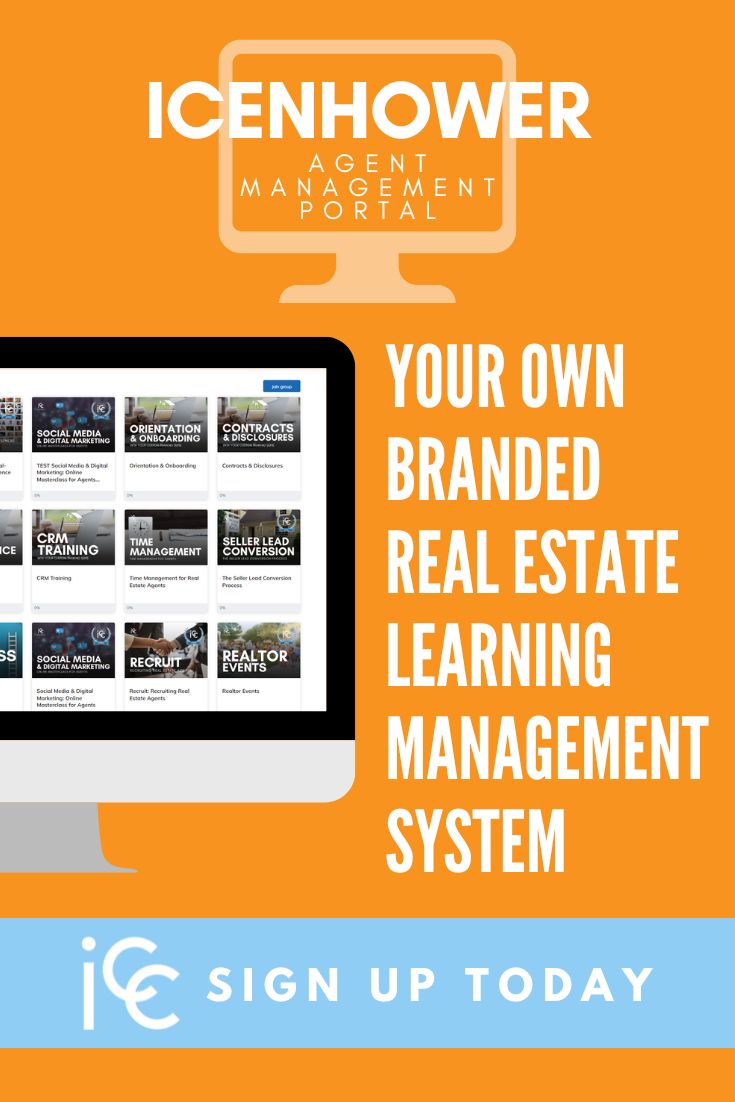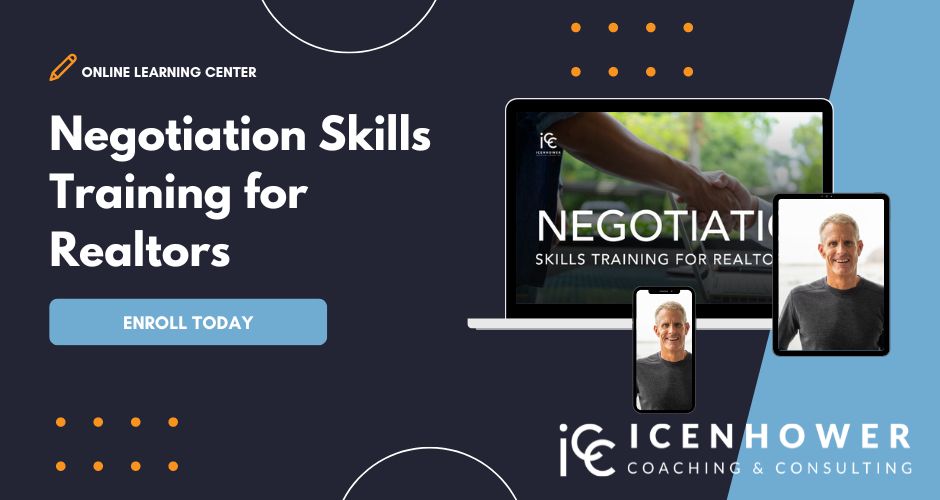Learn these best practices on how to train Realtors on NAR Settlement Compliance in the most effective & efficient ways for your real estate organization.
Today, we’re going to cover how to train Realtors on NAR Settlement Compliance.
As real estate professionals, we find ourselves in a constantly evolving industry. The recent NAR settlement changes have introduced a wave of new regulations that demand our immediate attention. If you’re leading a real estate team or brokerage, it’s crucial to guide your agents through these changes effectively.
Today, I’ll share the best practices on how to train realtors on NAR settlement compliance, ensuring they remain confident and compliant while navigating these new waters.
Be sure to listen to this episode of The Brian Icenhower Podcast and subscribe to the podcast so you never miss an episode!
VIDEO: Best Practices on How to Train Realtors on NAR Settlement Compliance
The Wrong Way to Approach NAR Settlement Changes
Before diving into the best practices, let’s discuss what not to do. A common mistake many leaders make is attempting to cover all the changes in one large team meeting. They present the new forms, outline the required actions, and expect agents to remember everything. Unfortunately, this approach assumes your team consists of straight-A students, all diligently taking notes and absorbing every detail. The reality is quite different.
Real estate agents, like many professionals, have varying learning styles. Moreover, the old-fashioned approach of delivering information through lectures and presentations is no longer effective, especially when dealing with millennials and other younger generations. These groups are used to more progressive and interactive forms of learning, which brings us to the core of our discussion: how to train realtors on NAR settlement compliance in a way that truly resonates with them.
The Three (or Four) Learning Styles to Consider
In my experience, people typically learn in three ways, possibly even four. They learn by listening, watching, and doing (kinesthetic learning). However, when it comes to learning new regulations, trial and error can be costly—both in terms of lost business and potential legal repercussions. Therefore, it’s essential to incorporate these learning styles into your training program, but with a focus on minimizing risks.
The fourth way people learn is by receiving education when they are ready to absorb it. People have off days, miss meetings, or simply aren’t in the right mindset to learn during a scheduled session.
As leaders, we must be flexible and provide our agents with the resources they need when they need them. This flexibility is particularly important when training realtors on NAR settlement compliance, as the stakes are high, and the material is complex.
Introducing our Agent Management Portal
ICC will create a customized and branded real estate learning management system and website for your team, brokerage or real estate company!
Best Practice #1: Use Short, Targeted Training Videos
One of the most effective ways to train realtors on NAR settlement compliance is through short, targeted videos. These videos should focus on specific forms and processes, ensuring that agents can easily find and digest the information they need without feeling overwhelmed.
For example, instead of creating one long video covering all the new forms, create individual videos for each form. This approach not only respects your agents’ time but also caters to their shorter attention spans, which is a reality in today’s fast-paced, digital world.
When creating these videos, use screen-sharing tools like Zoom or Microsoft Teams to walk agents through each form. Explain how to fill them out and why each step is important. Label each video clearly, such as “Buyer Agency Agreement Form – NAR Compliance,” to make them easily searchable.
Best Practice #2: Provide Easy Access to Training Materials
Once you have your videos, it’s essential to make them easily accessible to your agents. If you’re an Icenhower Coaching and Training client, you can upload these videos to our Agent Management Portal, where they can be securely accessed by your team. This platform also allows you to track who has watched the videos, ensuring that everyone is staying up to date.
For those not using the Agent Management Portal, consider uploading the videos to a private YouTube channel. This option allows you to quickly share video links with agents who have questions. When an agent texts you with a question, you can respond with a link to the relevant video, saving time and reducing the number of repetitive queries.
-
Quick View
Brokerage / Corporate Coaching Program
$1,500 / monthWith the Brokerage / Corporate Real Estate Coaching Program, ICT will help firms set up the most effective and efficient systems for recruiting, agent onboarding, commission & fee structures, agent engagement & retention systems, recruiting, administrative work-flows, transaction management, staff hiring, agent onboarding, productivity training & accountability, financials & budgeting, marketing and much more!
Best Practice #3: Engage Agents with Interactive Role-Playing Sessions
In addition to video training, incorporating role-playing sessions into your team meetings can be incredibly beneficial. These sessions allow agents to practice handling new forms and scripts in a low-stakes environment. Not only does this reinforce their learning, but it also builds confidence.
For example, you can organize role-play sessions where agents practice calling clients to explain the new NAR settlement changes. You can even turn this into a contest or challenge, where agents can earn prizes for the best presentations or most effective communication strategies. This approach makes learning fun and encourages participation.
Best Practice #4: Build a Comprehensive Training Library
As you create videos and scripts, you’re also building a valuable training library that will serve your organization for years to come. This library should include videos on all the essential topics related to NAR settlement compliance, including buyer and seller forms, agency agreements, and transition forms.
Make it a habit to record answers to frequently asked questions in video format. If you get a question more than once, that’s a sign that you need a video on that topic. Over time, this library will reduce the number of repetitive questions you receive and empower your agents to find answers independently.
Best Practice #5: Utilize Net Sheets to Set Clear Expectations
One critical tool in the training process is the use of net sheets. Net sheets help clients understand the financial aspects of a transaction, including what they will pay in commissions and other costs. Proper use of net sheets can prevent misunderstandings and reduce the risk of commission-related lawsuits.
Train your agents on how to use net sheets effectively. Encourage them to use net sheet programs provided by major title companies like First American, Chicago Title, or Fidelity Title. These third-party tools add a layer of professionalism and neutrality, helping clients feel more comfortable and informed.
Best Practice #6: Foster Collaboration and Peer Learning
Encourage your more experienced agents to mentor newer team members. This can be done by pairing them up for shadowing opportunities during listing or buyer consultations. Not only does this provide real-world training, but it also fosters a sense of camaraderie and teamwork within your organization.
Consider setting up a system where agents share common objections or questions they encounter in the field. As a team, you can develop objection handlers and scripts, ensuring everyone is prepared to handle client concerns with confidence.
The changes brought about by the NAR settlement are significant, but they also present a unique opportunity for you to step up as a leader.
Brian Icenhower
Best Practice #7: Monitor Progress and Adapt as Needed
Finally, it’s important to monitor the effectiveness of your training efforts. Use tools like the Agent Management Portal to track who has completed the training videos and who may need additional support. Be prepared to adapt your training methods as new challenges arise.
Remember, the real estate industry is in a state of flux, and we are likely to see more changes in the coming years. By staying proactive and continuously updating your training materials, you can ensure your team remains compliant and competitive.
Conclusion: Seize the Opportunity to Lead
The changes brought about by the NAR settlement are significant, but they also present a unique opportunity for you to step up as a leader. By following these best practices on how to train realtors on NAR settlement compliance, you can position your team as experts in the field, ready to guide clients through the complexities of the new regulations.
Remember, in times of chaos, there is always opportunity. By showing up as the experts, you not only protect your business but also enhance its value. So, let’s embrace these changes, equip our agents with the tools they need, and lead our teams to success.


